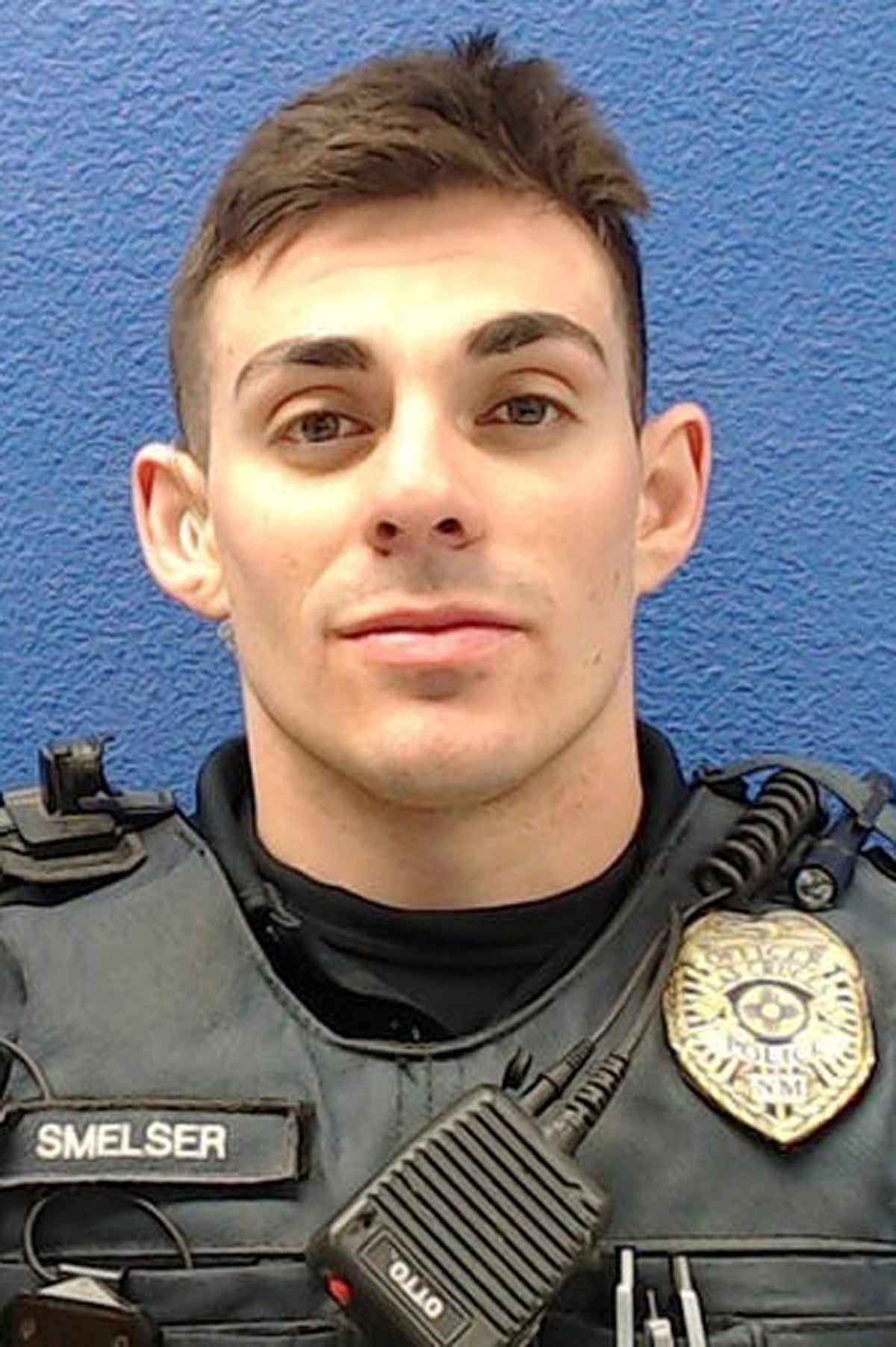
A former New Mexico police officer charged with murder in a man’s death during a 2020 struggle with officers didn’t properly use a chokehold that gradually ended the man’s life, a prosecutor told jurors Monday in opening statements at the ex-officer’s trial.
Las Cruces Officer Christopher Smelser had told investigators he had difficulty in applying the lateral vascular neck restraint on Antonio Valenzuela because Valenzuela kept tucking his chin, but he eventually carried out the maneuver by sliding his arm under Valenzuela’s chin when he lifted his head.
A medical examiner concluded Valenzuela, who fled on foot from officers during a traffic stop, died from asphyxial injuries due to physical restraint - and that methamphetamine in his system was a contributing factor in his death.
“The defendant knew that the way that he was doing it during the course of time before unconsciousness was rendered was not working,” prosecutor Mark Probasco told jurors.
An attorney for Smelser said none of the earlier uses of force were effective in stopping Valenzuela from fighting.
The struggle grew from a traffic stop of a truck in which Valenzuela was a passenger. Valenzuela, who was wanted on a warrant for a probation violation, bolted from officers once he exited the truck.
When catching up with Valenzuela in a dirt lot next to a church, officers took him to the ground, struggled to handcuff him, struck him with their hands and shot at him with a Taser.
Then Smelser used the chokehold. Once Valenzuela stopped moving and was handcuffed, an officer put one of his knees on his back as Valenzuela lay on his stomach. Smelser then took the other officer’s place, putting a knee on Valenzuela’s back.
At one point during the encounter, Smelser profanely told Valenzuela that he was going to “choke you out, bro.”
An autopsy report said Valenzuela had hemorrhaging in his eyes and eyelids, which is indicative of asphyxiation and may occur when the neck or chest is compressed. His neck had a deep muscle hemorrhage, his Adam’s apple was crushed and his ribs were fractured. There also was swelling in his brain.
Officers said they feared Valenzuela was trying to access a weapon when he reached toward one of the pockets on his pants, where police found an all-in-one plier set that contained a knife that folded out. The defense characterized it as a knife, while prosecutors called it a tool.
Smelser’s attorney, Amy Orlando, described the struggle as a chaotic, explosive fight in which officers repeatedly urged Valenzuela to stop resisting. Orlando said the force used on Valenzuela before the chokehold didn’t faze him.
Orlando said physical restraint alone didn’t kill Valenzuela, explaining that the autopsy found he also experienced the toxic effects of methamphetamine use.
“You can’t take the meth out of the equation,” Orlando said.
Valenzuela’s death led to Smelser’s termination and a settlement in which the city agreed to pay Valenzuela’s family $6.5 million and ban the use of chokeholds by its police officers.







